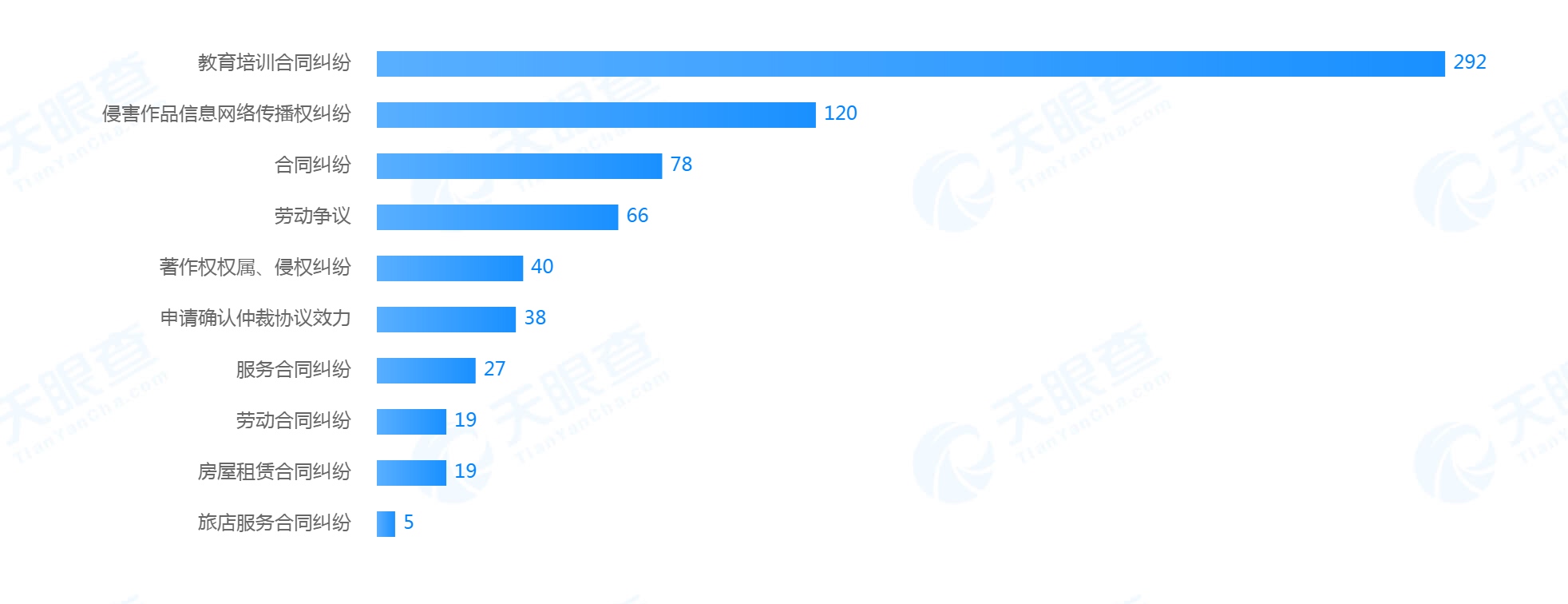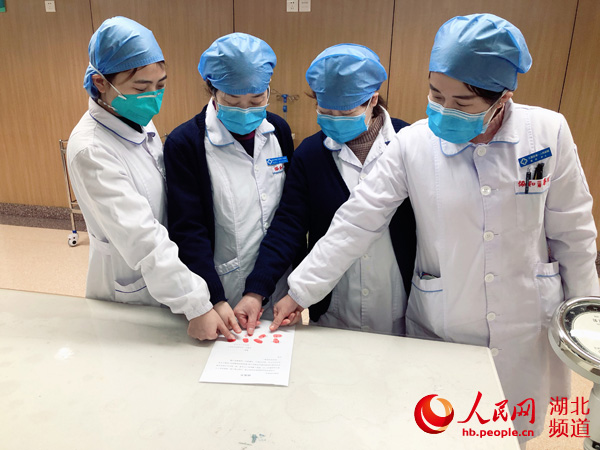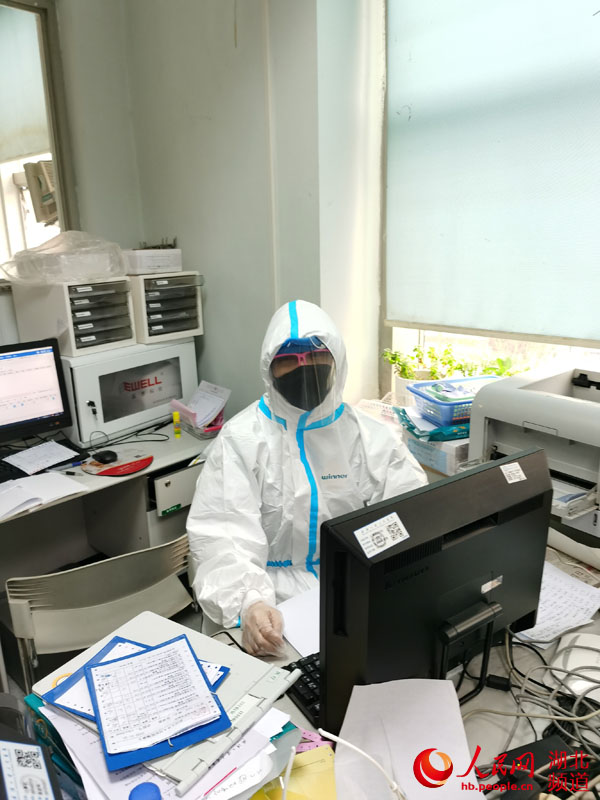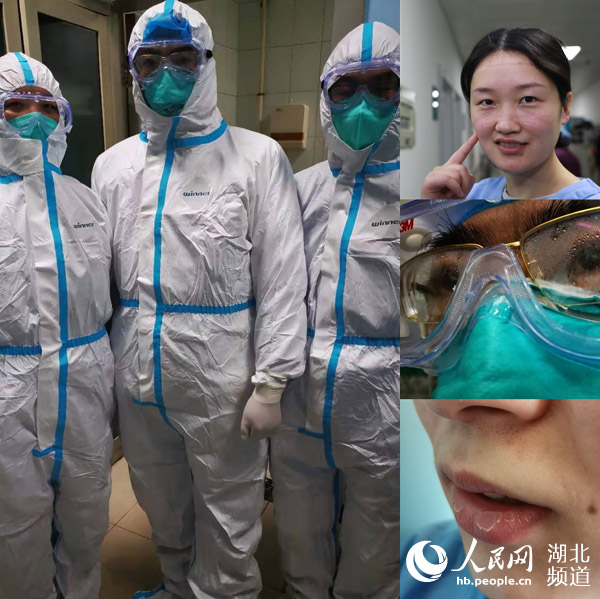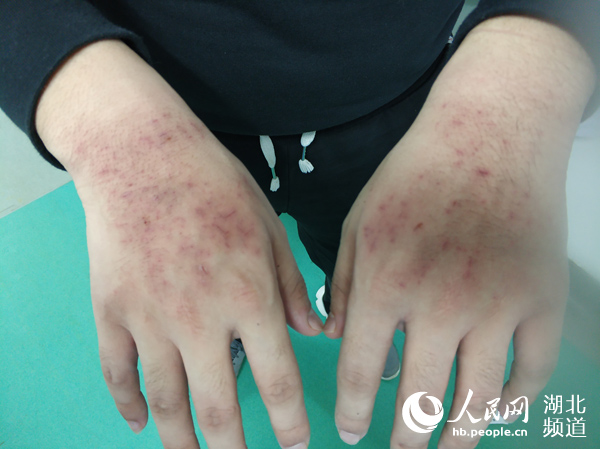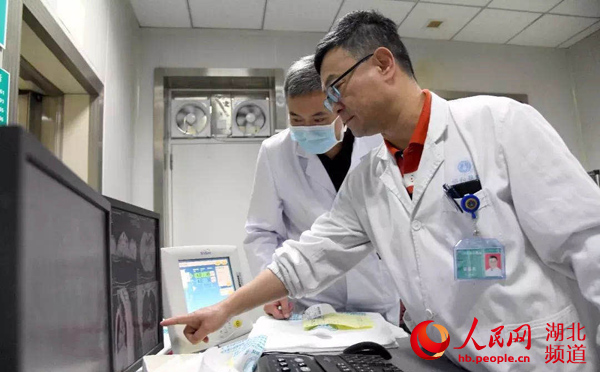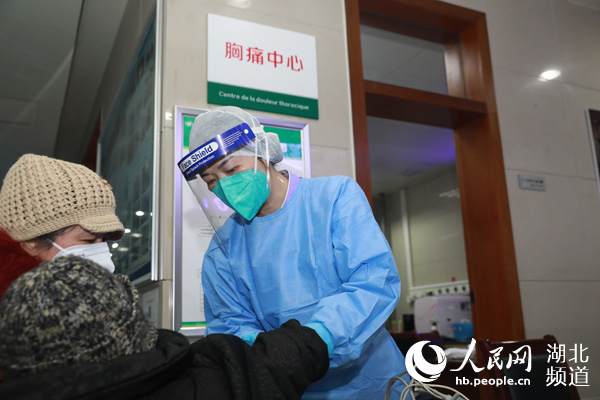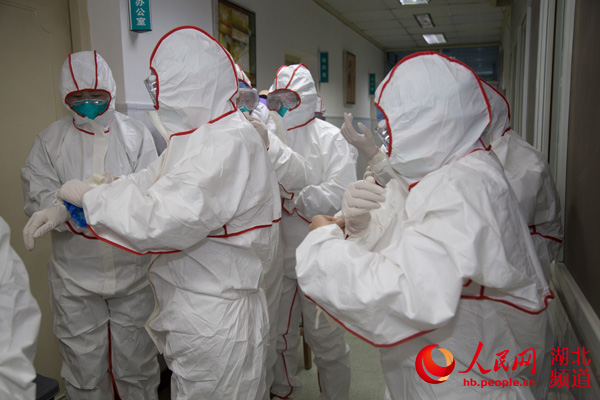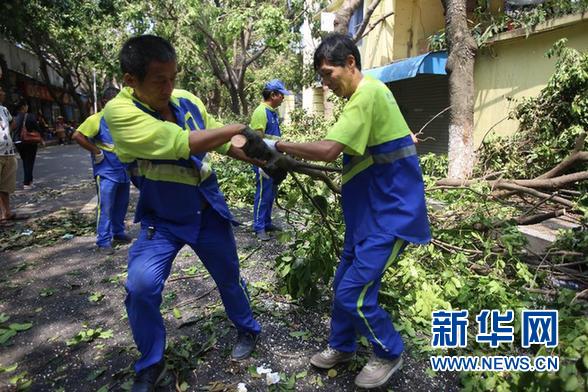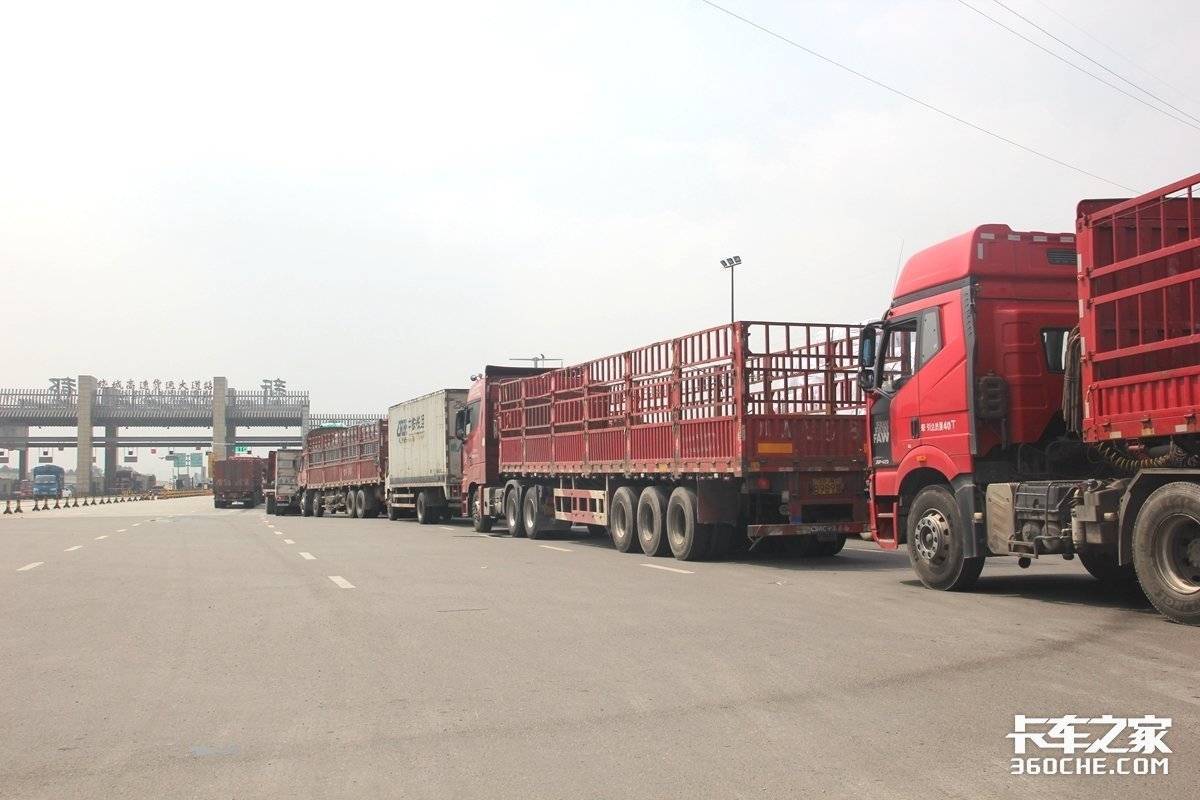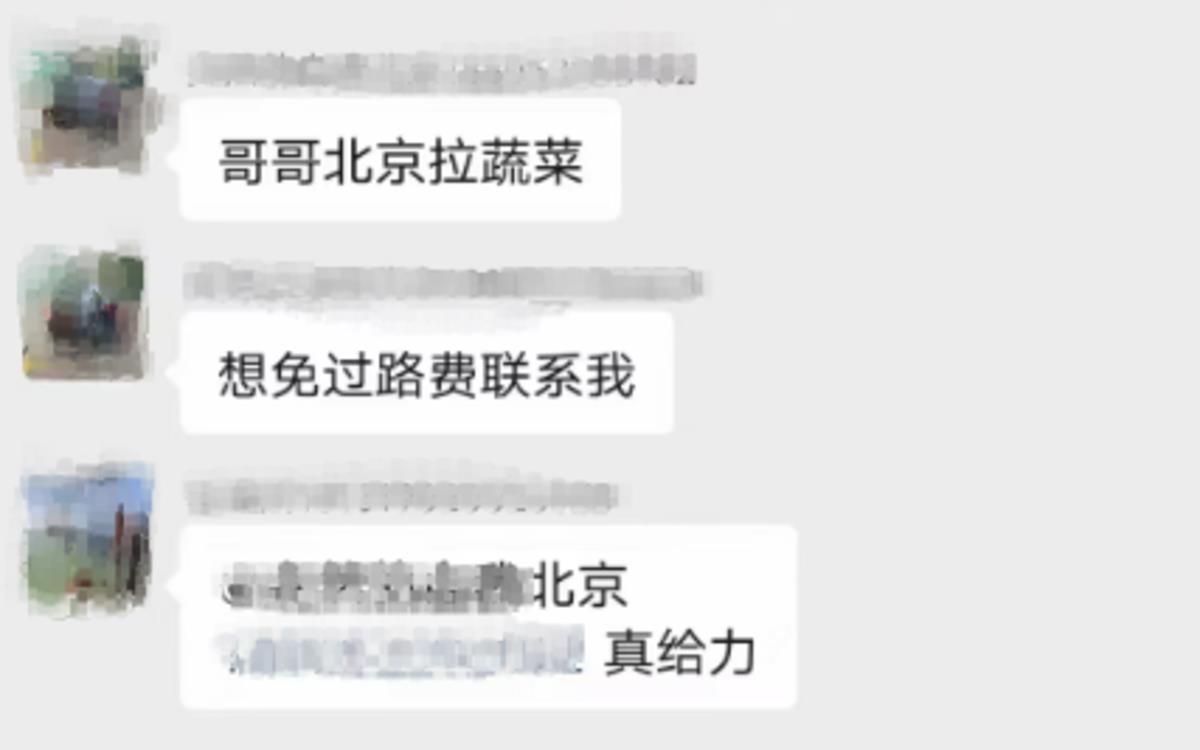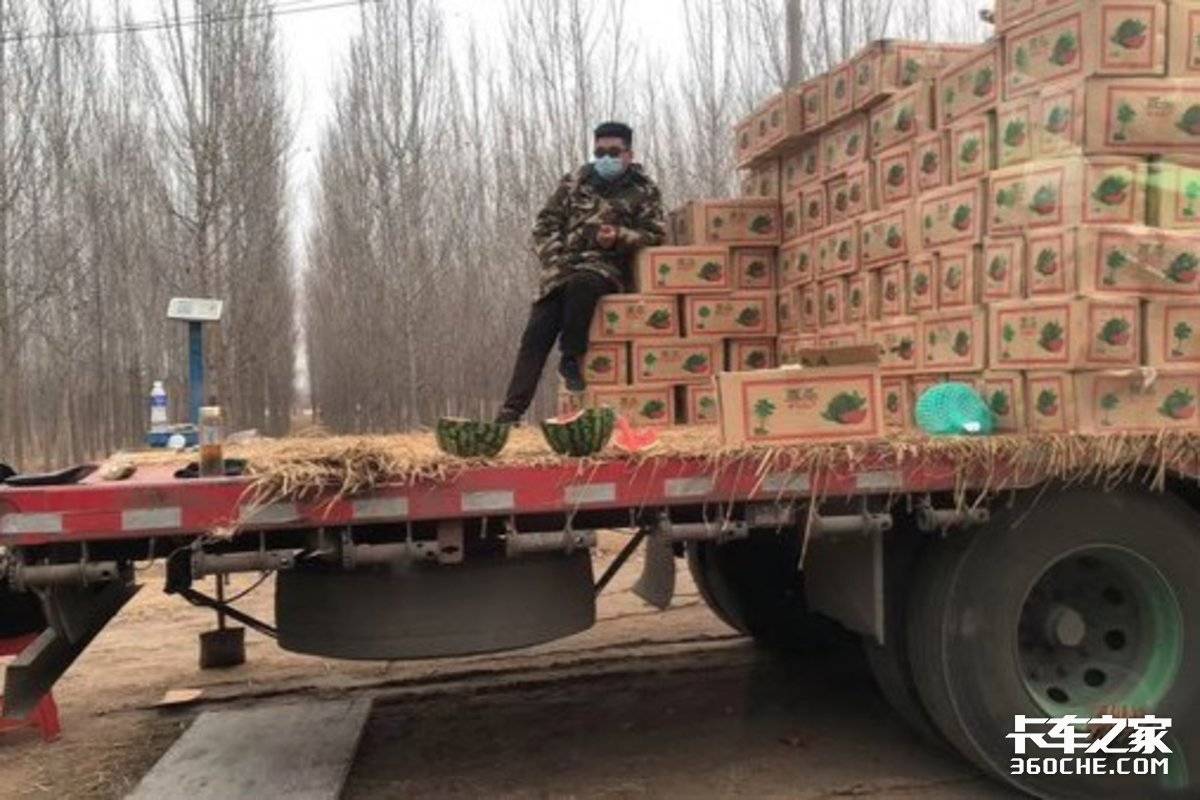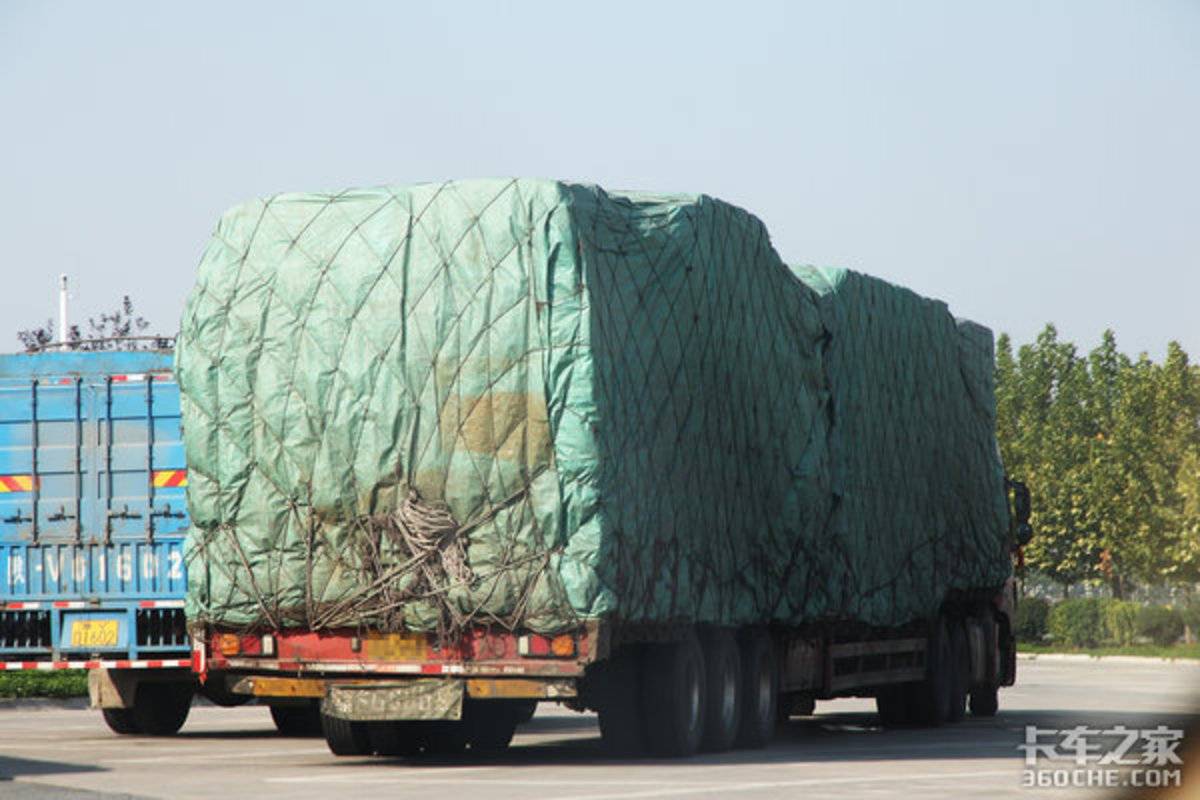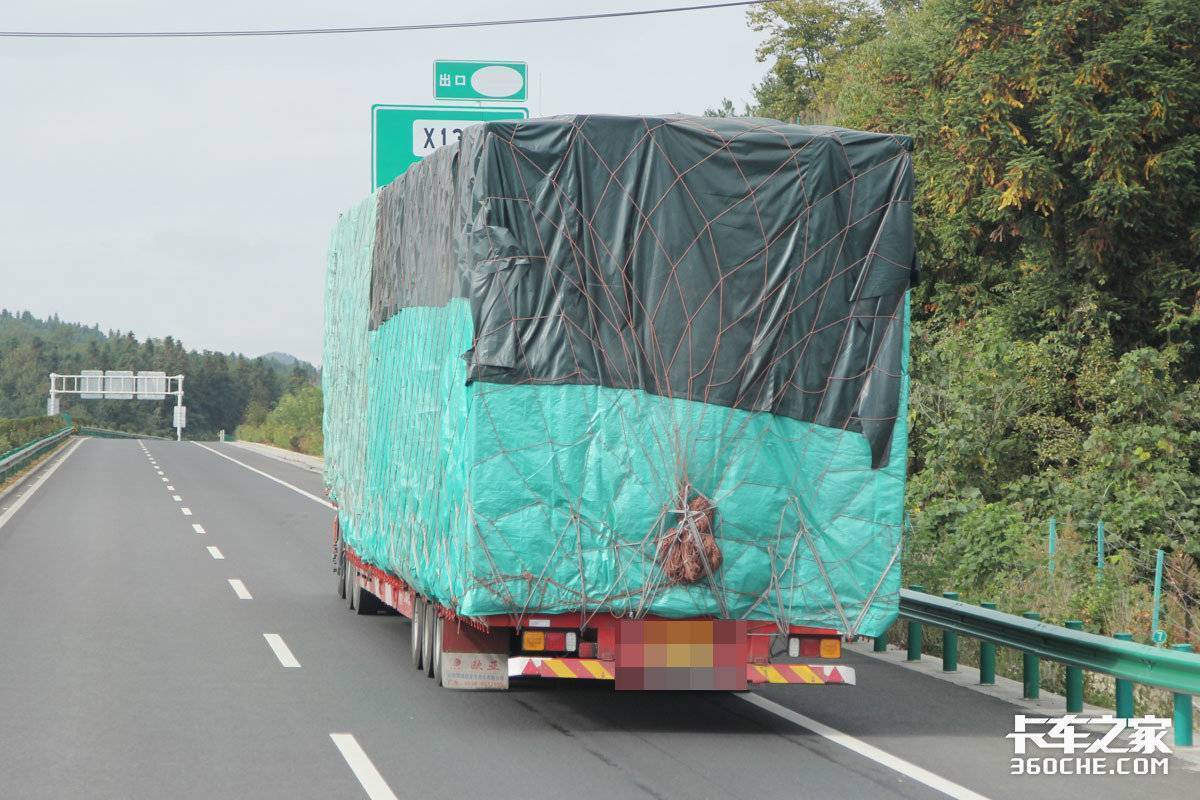order of the president of the people’s republic of china
No.65
The Law of People’s Republic of China (PRC) on the Protection of the Yangtze River was adopted by the 24th session of the 13th the NPC Standing Committee of the People’s Republic of China on December 26th, 2020, and is hereby promulgated and shall come into force as of March 1st, 2021.
Chairman People’s Republic of China (PRC), Supreme Leader
December 26, 2020
Catalogue
Chapter I General Principles
Chapter II Planning and Control
Chapter III Protection of Resources
Chapter IV Prevention and Control of Water Pollution
Chapter V Restoration of Ecological Environment
Chapter VI Green Development
Chapter VII Guarantee and Supervision
Chapter VIII Legal Liability
Chapter IX Supplementary Provisions
Chapter I General Principles
Article 1 This Law is formulated with a view to strengthening the protection and restoration of the ecological environment in the Yangtze River Basin, promoting the rational and efficient utilization of resources, ensuring ecological security, and realizing the harmonious coexistence between man and nature and the sustainable development of the Chinese nation.
Article 2 This Law shall be observed in the protection and restoration of the ecological environment and in all kinds of production, living, development and construction activities in the Yangtze River Basin.
The term "Yangtze River Basin" as mentioned in this Law refers to the relevant county-level administrative regions of Qinghai Province, Sichuan Province, Xizang Autonomous Region Province, Yunnan Province, Chongqing City, Hubei Province, Hunan Province, Jiangxi Province, Anhui Province, Jiangsu Province and Shanghai, as well as Gansu Province, Shaanxi Province, Henan Province, Guizhou Province, Guangxi Zhuang Autonomous Region, Guangdong Province, Zhejiang Province and Fujian Province.
Article 3 In the economic and social development of the Yangtze River Basin, we should adhere to ecological priority and green development, and make great efforts to protect and not to develop. The protection of the Yangtze River should adhere to overall coordination, scientific planning, innovation-driven and systematic governance.
Article 4 The State shall establish a coordination mechanism for the Yangtze River basin, give unified guidance and overall coordination to the Yangtze River protection work, review major policies and plans for the Yangtze River protection, coordinate major issues across regions and departments, and supervise and inspect the implementation of the important work for the Yangtze River protection.
Article 5 The relevant departments of the State Council and the people’s governments at the provincial level in the Yangtze River Basin shall be responsible for implementing the decision of the national Yangtze River Basin coordination mechanism, and shall be responsible for the work related to the protection of the Yangtze River in accordance with the division of responsibilities.
The local people’s governments at all levels in the Yangtze River Basin shall carry out the responsibilities of protecting and restoring the ecological environment in their respective administrative areas, promoting the rational and efficient utilization of resources, optimizing the industrial structure and layout, and maintaining the ecological security of the Yangtze River Basin.
The heads of rivers and lakes at all levels in the Yangtze River basin are responsible for the protection of the Yangtze River.
Article 6 Relevant places in the Yangtze River Basin shall, according to needs, establish cooperation mechanisms in the formulation of local laws and government regulations, planning, supervision and law enforcement, etc., so as to jointly promote the protection and restoration of the ecological environment in the Yangtze River Basin.
Article 7 The relevant departments in charge of ecological environment, natural resources, water administration, agriculture and rural areas and standardization in the State Council shall, in accordance with the division of responsibilities, establish and improve the standard systems of water environment quality and pollutant discharge, ecological environment restoration, water resource conservation and intensive utilization, ecological flow, biodiversity protection, aquaculture, disaster prevention and mitigation in the Yangtze River basin.
Article 8 The competent department of natural resources in the State Council shall, jointly with the relevant departments in the State Council, regularly organize surveys on the natural resources in the Yangtze River basin, such as land, minerals, water, forests, grasslands, wetlands, etc., establish a basic database of resources, carry out evaluation on the carrying capacity of resources and environment, and announce the natural resources in the Yangtze River basin to the public.
The department in charge of wildlife protection in the State Council shall organize a general survey of wildlife and its habitat every ten years, or organize a special investigation according to the needs, establish a wildlife resource file, and announce the wildlife resources in the Yangtze River basin to the public.
The competent agricultural and rural departments of the local people’s governments at or above the county level in the Yangtze River Basin shall, jointly with the relevant departments of the people’s governments at the corresponding levels, conduct biodiversity surveys on important habitats such as spawning grounds, feeding grounds, wintering grounds and migration routes for aquatic organisms.
Article 9 The national coordination mechanism for the Yangtze River Basin shall coordinate the relevant departments of the State Council to improve the monitoring network system and monitoring information sharing mechanism for the ecological environment, resources, hydrology, meteorology, shipping and natural disasters in the Yangtze River Basin on the basis of established stations and monitoring projects.
The relevant departments of the State Council and the local people’s governments at or above the county level in the Yangtze River Basin and their relevant departments shall, in accordance with the division of responsibilities, organize and improve the ecological environment risk reporting and early warning mechanism.
Article 10 The competent department of ecology and environment of the State Council shall, jointly with the relevant departments of the State Council and the people’s government at the provincial level in the Yangtze River Basin, establish and improve the emergency linkage mechanism for sudden ecological and environmental incidents in the Yangtze River Basin, link up with the national emergency response system, and strengthen the emergency management of sudden ecological and environmental incidents in ships, ports, mines, chemical plants and tailings ponds in the Yangtze River Basin.
Article 11 The State shall strengthen the construction of monitoring, forecasting, early warning, defense, emergency response and recovery and reconstruction systems for floods, droughts, forest and grassland fires, geological disasters and earthquakes in the Yangtze River basin, so as to improve the ability of disaster prevention, mitigation, resilience and relief.
Article 12 The National Yangtze River Basin Coordination Mechanism shall set up an expert advisory committee to organize professional institutions and personnel to carry out scientific and technical professional consultation on major development strategies, policies and plans of the Yangtze River Basin.
The relevant departments of the State Council and the people’s governments at the provincial level in the Yangtze River Basin and their relevant departments shall, in accordance with the division of responsibilities, organize the third-party assessment, analysis and demonstration of the impacts of Yangtze River Basin construction projects, important infrastructure and industrial layout planning on the Yangtze River Basin ecosystem.
Thirteenth national Yangtze River basin coordination mechanism to coordinate the relevant departments of the State Council and the people’s governments at the provincial level to establish and improve the Yangtze River basin information sharing system. The relevant departments of the State Council and the people’s governments at the provincial level in the Yangtze River Basin and their relevant departments shall, in accordance with the provisions, share information on the ecological environment, natural resources and management and law enforcement in the Yangtze River Basin.
Fourteenth relevant departments of the State Council and the local people’s governments at or above the county level in the Yangtze River Basin and their relevant departments should strengthen the publicity and education of ecological environment protection and green development in the Yangtze River Basin.
The news media should take various forms to carry out publicity and education on ecological environment protection and green development in the Yangtze River basin, and supervise the illegal acts by public opinion according to law.
Article 15 The relevant departments of the State Council and the local people’s governments at or above the county level in the Yangtze River Basin and their relevant departments shall take measures to protect the famous historical and cultural cities, towns and villages in the Yangtze River Basin, strengthen the protection of cultural heritage in the Yangtze River Basin, and inherit and carry forward the excellent characteristic culture in the Yangtze River Basin.
Article 16 The State encourages and supports units and individuals to participate in the activities of protecting and restoring the ecological environment, rationally utilizing resources and promoting green development in the Yangtze River basin.
Units and individuals that have made outstanding contributions to the protection of the Yangtze River shall be commended and rewarded by the people’s governments at or above the county level and their relevant departments in accordance with the relevant provisions of the state.
Chapter II Planning and Control
Article 17 The State shall establish a planning system for the Yangtze River basin under the guidance of national development planning, based on spatial planning, supported by special planning and regional planning, and give full play to the leading, guiding and restraining role of planning in promoting the ecological environment protection and green development of the Yangtze River basin.
Eighteenth the State Council and the local people’s governments at or above the county level in the Yangtze River Basin shall incorporate the protection of the Yangtze River into the national economic and social development plan.
The development and reform department of the State Council, together with the relevant departments of the State Council, worked out the development plan of the Yangtze River Basin, scientifically coordinated the ecological environment protection and green development of the upper and lower reaches, left and right banks, main tributaries of the Yangtze River Basin, and implemented it after being approved by the State Council.
Water resources planning and ecological environment protection planning in the Yangtze River basin shall be compiled in accordance with the provisions of relevant laws and administrative regulations.
Article 19 The competent department of natural resources of the State Council shall, jointly with the relevant departments of the State Council, organize the compilation of the land spatial planning of the Yangtze River Basin, scientifically and orderly arrange the functional spaces of ecology, agriculture and towns in the Yangtze River Basin, delimit the red line of ecological protection, permanent basic farmland and urban development boundaries, optimize the land spatial structure and layout, and guide the land spatial utilization tasks of the Yangtze River Basin, which shall be implemented after being approved by the State Council. The special planning involving the use of land and space in the Yangtze River Basin should be linked with the land and space planning in the Yangtze River Basin.
The local people’s governments at or above the county level in the Yangtze River Basin shall organize the compilation of the land spatial planning of their respective administrative areas, and implement it after being submitted for approval in accordance with the prescribed procedures.
Article 20 The State shall exercise use control over the land space in the Yangtze River Basin. The competent departments of natural resources of the local people’s governments at or above the county level in the Yangtze River Basin shall, in accordance with the land space planning, exercise zoning and classified use control over the land space of the Yangtze River Basin under their jurisdiction.
The development and utilization of land space in the Yangtze River Basin shall meet the requirements for the control of land space use and obtain planning permission according to law. The competent department of natural resources of the people’s government at or above the county level shall not apply for planning permission if it does not meet the requirements for the control of land and space use.
Twenty-first the State Council water administrative departments to co-ordinate the rational allocation, unified scheduling and efficient utilization of water resources in the Yangtze River basin, and organize the implementation of the total water intake control and consumption intensity control management system.
The competent department of ecological environment in the State Council shall, according to the water environment quality improvement objectives and water pollution prevention and control requirements, determine the total emission control indicators of key pollutants in the provincial administrative regions of the Yangtze River Basin. In the water functional areas where the water quality in the Yangtze River basin exceeds the standard, stricter requirements for reducing the total amount of pollutant discharge should be implemented. Enterprises and institutions shall, in accordance with the requirements, take measures to control the total discharge of pollutants.
The competent department of natural resources in the State Council is responsible for the overall planning and control of the total amount of new construction land in the Yangtze River Basin.
Twenty-second people’s governments at the provincial level in the Yangtze River Basin shall, according to the ecological environment and the utilization of resources in their respective administrative areas, formulate the ecological environment zoning control scheme and the ecological environment access list, and report them to the competent department of ecological environment in the State Council for the record before implementation. Eco-environmental zoning control scheme and eco-environmental access list should be connected with national land spatial planning.
The industrial structure and layout of the Yangtze River basin should be adapted to the carrying capacity of the Yangtze River basin ecosystem and resources and environment. It is forbidden to lay out industries that have a serious impact on the ecosystem in key ecological function areas of the Yangtze River Basin. It is forbidden for heavily polluting enterprises and projects to transfer to the middle and upper reaches of the Yangtze River.
Article 23 The State strengthens the management of the development and utilization of hydropower resources in the Yangtze River basin. Because of the national development strategy and the needs of the national economy and people’s livelihood, the construction of large and medium-sized hydropower projects in the Yangtze River basin shall be scientifically demonstrated and reported to the departments authorized by the State Council or the State Council for approval.
The local people’s governments at or above the county level shall organize classified rectification or take measures to gradually withdraw from the small hydropower projects built in the Yangtze River basin that do not meet the requirements of ecological protection.
Article 24 The state strictly protects the sources of the main stream and important tributaries of the Yangtze River, and establishes national parks and other nature reserves to protect the national ecological security barrier.
Twenty-fifth the State Council water administrative departments to strengthen the protection of rivers and lakes in the Yangtze River basin. The local people’s governments at or above the county level in the Yangtze River Basin are responsible for delineating the scope of management of rivers and lakes, and announcing it to the public, implementing strict protection of rivers and lakes, and prohibiting illegal occupation of rivers and lakes.
Article 26 The State shall exercise special control over the shoreline of rivers and lakes in the Yangtze River basin. The National Yangtze River Basin Coordination Mechanism coordinates the departments of natural resources, water administration, ecological environment, housing and urban and rural construction, agriculture and rural areas, transportation, forestry and grassland in the State Council, and the people’s governments at the provincial level in the Yangtze River Basin to delimit the protection scope of river and lake shorelines, formulate protection plans for river and lake shorelines, strictly control the development and construction of shorelines, and promote the rational and efficient utilization of shorelines.
It is forbidden to build or expand chemical parks and chemical projects within one kilometer of the coastline of the main tributaries of the Yangtze River.
It is forbidden to build, rebuild or expand tailings ponds within three kilometers of the coastline of the main stream of the Yangtze River and within one kilometer of the coastline of important tributaries; However, the reconstruction for the purpose of improving safety and ecological environment protection is excluded.
Article 27 The transportation department of the State Council shall, jointly with the departments in charge of natural resources, water administration, ecological environment, agriculture and rural areas, forestry and grassland of the State Council, scientifically delimit the prohibited navigation areas and restricted navigation areas in the important habitats of aquatic organisms in the Yangtze River basin.
It is forbidden for ships to sail in the designated no-navigation areas. Because of the national development strategy and the needs of the national economy and the people’s livelihood, sailing in areas where navigation is prohibited in important habitats of aquatic organisms shall be agreed by the competent department of transportation in the State Council in consultation with the competent department of agriculture and rural areas in the State Council, and necessary measures shall be taken to reduce the interference to important aquatic organisms.
Strictly restrict the implementation of waterway regulation projects in the red line of ecological protection, nature reserves and important habitats of aquatic organisms in the Yangtze River basin; If rectification is really necessary, it shall be scientifically demonstrated and relevant procedures shall be handled according to law.
Article 28 The State establishes a planning and licensing system for sand mining in the Yangtze River basin. Sand mining in the Yangtze River basin shall be licensed by the water administrative department of the State Council, the relevant river basin management institution or the water administrative department of the local people’s government at or above the county level according to law.
The relevant river basin management agencies of the water administrative department of the State Council and the local people’s governments at or above the county level in the Yangtze River basin shall demarcate the sand-mining prohibition area and the sand-mining prohibition period according to law, and strictly control the sand-mining area, the total amount of sand-mining and the number of sand-mining vessels in the sand-mining area. It is forbidden to engage in sand mining activities in the prohibited sand mining areas and sand mining periods in the Yangtze River Basin.
The water administrative department of the State Council shall, jointly with the relevant departments of the State Council, organize the relevant local people’s governments in the Yangtze River basin and their relevant departments to carry out joint law enforcement work on illegal sand mining in the Yangtze River basin.
Chapter III Protection of Resources
Article 29 The protection and utilization of water resources in the Yangtze River Basin shall, according to the comprehensive planning of the basin, give priority to meeting the domestic water needs of urban and rural residents, guarantee the basic ecological water use, and make overall plans for agriculture, industrial water use and shipping.
Article 30 The relevant river basin management agencies of the water administrative department of the State Council, in consultation with the people’s government at the provincial level in the Yangtze River basin, shall formulate the inter-provincial river water allocation plan according to law, which shall be implemented after being approved by the department authorized by the State Council or the State Council. The opinions of the relevant departments of the State Council shall be sought for the formulation of the inter-provincial river water allocation scheme in the Yangtze River basin. The water administrative department of the people’s government at the provincial level in the Yangtze River Basin shall formulate a water allocation plan for the Yangtze River Basin within its administrative region, which shall be implemented after being approved by the people’s government at the corresponding level.
According to the approved water allocation plan, the relevant river basin management organization of the water administrative department of the State Council or the water administrative department of the local people’s government at or above the county level in the Yangtze River basin shall prepare the annual water allocation plan and dispatching plan, and specify the requirements for the control of the flow and water level of relevant river sections and control sections.
Article 31 The State shall strengthen the protection of ecological water use in the Yangtze River basin. The water administrative department of the State Council, together with the relevant departments of the State Council, put forward the ecological flow control indicators of the main stream of the Yangtze River, important tributaries and important lake control sections. Other river and lake ecological flow control indicators shall be determined by the water administrative department of the local people’s government at or above the county level in the Yangtze River basin in conjunction with the relevant departments of the people’s government at the corresponding level.
The relevant river basin management agencies of the water administrative department of the State Council shall incorporate the ecological water quantity into the annual water dispatching plan, ensure the basic ecological water demand of rivers and lakes, ensure the ecological flow in dry season and fish spawning period, the water quantity and water level of important lakes, and ensure the balance of salt and fresh water in the Yangtze River estuary.
Projects such as water conservancy, hydropower and shipping hubs in the main stream of the Yangtze River, important tributaries and the upper reaches of important lakes should incorporate ecological water dispatching into daily operation dispatching procedures, establish a conventional ecological dispatching mechanism, and ensure the ecological flow of rivers and lakes; If the discharge flow does not meet the requirements of ecological discharge, the water administrative department of the people’s government at or above the county level shall put forward rectification measures and supervise the implementation.
Article 32 The relevant departments in the State Council and the local people’s governments at all levels in the Yangtze River Basin should take measures to speed up the reinforcement of dangerous reservoirs, promote the construction of dikes and flood storage and detention areas, improve the engineering standards for flood prevention, strengthen the joint dispatching of water projects, carry out river sediment observation and river regime investigation, establish flood control and disaster reduction engineering and non-engineering systems suitable for economic and social development, and improve the overall ability to prevent floods and droughts.
Article 33 The State shall conduct scientific demonstration and strengthen control and management of water transfer across the Yangtze River basin. The implementation of water transfer across the Yangtze River basin should give priority to ensuring the water safety and ecological safety of the transfer-out area and its downstream area, and coordinate the water demand of the transfer-out area and the transfer-in area.
Article 34 The State strengthens the protection of drinking water sources in the Yangtze River basin. The water administrative department of the State Council shall, jointly with relevant departments of the State Council, formulate a list of drinking water sources in the Yangtze River basin. The water administrative department of the people’s government at the provincial level in the Yangtze River Basin shall, jointly with the relevant departments of the people’s government at the corresponding level, formulate a list of other drinking water sources in this administrative region.
The people’s governments at the provincial level in the Yangtze River Basin organize the delineation of drinking water source protection areas, strengthen the protection of drinking water sources and ensure the safety of drinking water.
Article 35 The local people’s governments at or above the county level in the Yangtze River Basin and their relevant departments shall rationally arrange the water intakes of drinking water sources, formulate emergency plans for drinking water safety emergencies, strengthen the construction of standby emergency drinking water sources, and monitor the water environmental quality of drinking water sources in real time.
Article 36 The local people’s governments at or above the county level in Danjiangkou reservoir area and its upstream area shall, in accordance with the management requirements of drinking water source safety protection zone, water quality impact control zone and water conservation ecological construction zone, strengthen the overall protection of landscape, forest, field, lake and grass, enhance the water conservation capacity, and ensure the stable water quality reaching the standard.
Article 37 The State strengthens the protection of groundwater resources in the Yangtze River basin. The local people’s governments at or above the county level in the Yangtze River Basin and their relevant departments shall regularly investigate and evaluate the groundwater resources, monitor the groundwater quantity, water level and water environment quality, and take corresponding risk prevention measures to ensure the safety of groundwater resources.
Thirty-eighth the State Council water administrative department in conjunction with the relevant departments of the State Council to determine the Yangtze River basin agricultural and industrial water efficiency targets, strengthen the construction of water metering and monitoring facilities; Improve the water resources demonstration system for planning and construction projects; Strengthen the water quota management of high water consumption industries and key water consumption units, and strictly control the construction of high water consumption projects.
Article 39 The State shall make overall plans for the construction of nature reserves in the Yangtze River Basin. The State Council and the people’s governments at the provincial level in the Yangtze River Basin have established national parks, nature reserves, natural parks and other nature reserves in the complete distribution areas of important typical ecosystems, sensitive areas of ecological environment, natural concentrated distribution areas of precious wild animals and plants, important habitats and important natural relics in the Yangtze River Basin.
Fortieth the State Council and the people’s governments at the provincial level in the Yangtze River Basin shall, in accordance with the law, delimit public welfare forests in important ecological areas and ecologically fragile areas in the Yangtze River Basin and implement strict management. The state strictly protects natural forests in the Yangtze River basin and scientifically delineates key areas for natural forest protection.
The local people’s governments at or above the county level in the Yangtze River Basin should strengthen the protection of grassland resources in the Yangtze River Basin, and strictly manage the basic grasslands with special functions such as regulating climate, conserving water, conserving soil and water, preventing wind and fixing sand.
The competent forestry and grassland authorities in the State Council and the people’s government at the provincial level in the Yangtze River Basin shall, jointly with the relevant departments of the people’s government at the corresponding level, publish the list of national and local important wetlands and the scope of protection in the Yangtze River Basin according to the needs of different ecological locations, ecosystem functions and biodiversity protection, strengthen the protection and management of wetlands in the Yangtze River Basin, and maintain the ecological functions and biodiversity of wetlands.
Article 41 The competent department of agriculture and rural areas of the State Council shall, jointly with the relevant departments of the State Council and the provincial people’s government of the Yangtze River Basin, establish an evaluation system of aquatic organism integrity index in the Yangtze River Basin, organize the evaluation of aquatic organism integrity in the Yangtze River Basin, and take the results as an important basis for evaluating the overall situation of the Yangtze River Basin ecosystem. The integrity index of aquatic organisms in the Yangtze River basin should be connected with the water environment quality standards in the Yangtze River basin.
Article 42 The competent agricultural and rural authorities in the State Council and the local people’s governments at or above the county level in the Yangtze River Basin shall formulate a plan for the protection of rare and endangered aquatic wildlife in the Yangtze River Basin, and give priority to the protection of rare and endangered aquatic wildlife in the Yangtze River Basin.
The state encourages qualified units to carry out research on finless porpoises, baiji, paddlefish, Chinese sturgeon, Yangtze sturgeon, roe carp, Sichuan white turtle, Sichuan and Shaanxi hucho salmon, mullet, tong yu, scaly white turtle, Chinese herring and perch carp in the Yangtze River basin.
It is forbidden to breed and put exotic species or other non-native germplasm resources in the open waters of the Yangtze River basin.
Chapter IV Prevention and Control of Water Pollution
Article 43 The competent department of ecological environment in the State Council and the local people’s governments at all levels in the Yangtze River Basin shall take effective measures to strengthen the prevention and supervision of water pollution in the Yangtze River Basin, so as to prevent, control and reduce water pollution.
Forty-fourth the State Council ecological environment department is responsible for the development of water environment quality standards in the Yangtze River basin, and can make supplementary provisions for items not specified in the national water environment quality standards; More stringent regulations can be made on the items that have been stipulated in the national water environment quality standards. The opinions of the relevant departments of the State Council and the relevant provincial people’s governments shall be sought for the formulation of water environment quality standards in the Yangtze River basin. The people’s governments at the provincial level in the Yangtze River Basin may formulate local water environment quality standards that are stricter than those in the Yangtze River Basin and report them to the competent department of ecological environment in the State Council for the record.
Article 45 The people’s governments at the provincial level in the Yangtze River Basin shall supplement and formulate local standards for the discharge of water pollutants for characteristic industries and endemic pollutants that do not have national standards for the discharge of water pollutants, or for specific water pollution sources or water pollutants that are explicitly required by the state, and report them to the competent department of ecological environment of the State Council for the record.
Under any of the following circumstances, the people’s government at the provincial level in the Yangtze River Basin shall formulate local water pollutant discharge standards that are stricter than the national water pollutant discharge standards and report them to the competent department of ecological environment of the State Council for the record:
(a) the industry is intensive and the water environment problem is outstanding;
(two) the existing water pollutant discharge standards can not meet the requirements of water environment quality in the Yangtze River basin under its jurisdiction;
(3) The water environment situation in a river basin or region is so complicated that it is impossible to apply uniform standards for the discharge of water pollutants.
Forty-sixth people’s governments at the provincial level in the Yangtze River Basin shall formulate the control plan for total phosphorus pollution in their respective administrative areas and organize their implementation. For the main and tributaries of the Yangtze River where the production of phosphate rock and phosphate fertilizer is concentrated, the relevant provincial people’s governments should formulate stricter requirements for the control of total phosphorus emission and effectively control the total amount of total phosphorus emission.
Enterprises such as phosphate mining and processing, phosphate fertilizer and phosphorus-containing pesticide manufacturing shall take effective measures to control the total phosphorus emission concentration and total emission in accordance with the requirements of pollutant discharge permit; Monitor the total phosphorus in the sewage outlet and the surrounding environment, and disclose the monitoring information according to law.
Article 47 The local people’s governments at or above the county level in the Yangtze River Basin shall co-ordinate the construction of urban and rural centralized sewage treatment facilities and supporting pipe networks in the Yangtze River Basin, ensure their normal operation, and improve the capacity of urban and rural sewage collection and treatment.
The local people’s governments at or above the county level in the Yangtze River Basin shall organize the investigation and rectification of the sewage outlets of rivers and lakes in their respective administrative areas, clarify the responsible subjects, and implement classified management.
The construction, alteration or expansion of sewage outlets in rivers and lakes in the Yangtze River basin shall be reported to the competent department of ecological environment or the supervision and administration institution of ecological environment in the Yangtze River basin for approval in accordance with relevant state regulations. For water functional areas that fail to meet the water quality objectives, except for the sewage outlets of centralized sewage treatment facilities, new, modified or expanded sewage outlets should be strictly controlled.
Article 48 The State shall strengthen the prevention and control of agricultural non-point source pollution in the Yangtze River basin. Agricultural production in the Yangtze River basin should scientifically use agricultural inputs, reduce the use of chemical fertilizers and pesticides, promote the use of organic fertilizers, and scientifically dispose of agricultural wastes such as agricultural films and crop straws.
Article 49 It is forbidden to dump, bury, pile up, abandon or treat solid waste within the management scope of rivers and lakes in the Yangtze River basin. The local people’s governments at or above the county level in the Yangtze River Basin shall strengthen joint prevention and control of illegal transfer and dumping of solid waste.
Article 50 The local people’s governments at or above the county level in the Yangtze River Basin shall organize investigation and evaluation of key groundwater pollution sources and surrounding groundwater environmental risks such as landfill sites, gas stations, mines, tailings ponds, hazardous waste disposal sites, chemical parks and chemical projects along the Yangtze River, and take corresponding risk prevention and remediation measures.
Article 51 The State shall establish a mechanism combining pollution liability insurance for ships transporting dangerous goods in the Yangtze River basin with financial guarantee. The specific measures shall be formulated by the transportation department of the State Council in conjunction with the relevant departments of the State Council.
It is forbidden to transport highly toxic chemicals on the water in the Yangtze River basin and other dangerous chemicals prohibited by the state from being transported by inland rivers. The transportation departments of the local people’s governments at or above the county level in the Yangtze River Basin shall, jointly with the relevant departments of the people’s governments at the corresponding levels, strengthen the control over the transportation of dangerous chemicals in the Yangtze River Basin.
Chapter V Restoration of Ecological Environment
Article 52 The state implements a systematic management of the ecosystem of the Yangtze River basin, which is based on natural restoration and combines natural restoration with artificial restoration. The competent department of natural resources of the State Council shall, jointly with the relevant departments of the State Council, prepare the ecological environment restoration plan of the Yangtze River Basin, organize the implementation of major ecological environment restoration projects, and promote the ecological environment restoration work in the Yangtze River Basin as a whole.
Article 53 The State exercises strict fishing management in key waters of the Yangtze River Basin. A total ban on productive fishing in the aquatic biological reserve in the Yangtze River basin; Within the time limit prescribed by the state, the productive fishing of natural fishery resources will be completely banned in key waters such as the main stream and important tributaries of the Yangtze River, large Tongjiang lakes and the designated areas at the mouth of the Yangtze River. The specific measures shall be formulated by the competent agricultural and rural authorities of the State Council in conjunction with the relevant departments of the State Council.
The competent department of agriculture and rural areas of the State Council, together with the relevant departments of the State Council and the provincial people’s government of the Yangtze River basin, will strengthen the enforcement of the ban on fishing in the Yangtze River basin, and severely investigate and deal with fishing behaviors that destroy fishery resources and ecological environment, such as electric fish, poisonous fish and fried fish.
The local people’s governments at or above the county level in the Yangtze River Basin shall, in accordance with the relevant provisions of the state, do a good job in the compensation, production change and social security of fishermen who have retired from key waters in the Yangtze River Basin.
Measures for the administration of fishing bans and restrictions in other waters of the Yangtze River Basin shall be formulated by local people’s governments at or above the county level.
Article 54 The water administrative department of the State Council shall, jointly with the relevant departments of the State Council, formulate and organize the implementation of the restoration scheme for the connectivity of rivers and lakes in the main stream and important tributaries of the Yangtze River, and the people’s governments at the provincial level in the Yangtze River Basin shall formulate and organize the implementation of the restoration scheme for the connectivity of rivers and lakes in their respective administrative areas, so as to gradually improve the connectivity of rivers and lakes in the Yangtze River Basin, restore the ecological flow of rivers and lakes, and maintain the ecological functions of rivers and lakes.
Article 55 The National Yangtze River Basin Coordination Mechanism shall coordinate and coordinate the State Council’s departments of natural resources, water administration, ecological environment, housing and urban and rural construction, agriculture and rural areas, transportation, forestry and grassland, and the people’s governments at the provincial level in the Yangtze River Basin to formulate norms for the shoreline restoration of rivers and lakes in the Yangtze River Basin and determine the shoreline restoration indicators.
The local people’s governments at or above the county level in the Yangtze River Basin shall, in accordance with the requirements of the protection planning, restoration norms and indicators of the river and lake shoreline in the Yangtze River Basin, formulate and organize the implementation of the river and lake shoreline restoration plan to ensure the proportion of natural coastline and restore the ecological functions of the river and lake shoreline.
It is forbidden to illegally use or occupy the coastline of rivers and lakes in the Yangtze River basin.
Article 56 The relevant departments of the State Council, together with the relevant provincial people’s governments in the Yangtze River Basin, will strengthen the protection and restoration of the ecological environment in the water-level fluctuation zones in key reservoir areas such as the Three Gorges Reservoir Area and Danjiangkou Reservoir Area, implement returning farmland to forests and grasslands according to local conditions, prohibit the application of chemical fertilizers and pesticides, scientifically regulate the water level of reservoirs, strengthen the water and soil conservation and the prevention and control of geological disasters in the reservoir areas, and ensure the good ecological functions of the water-level fluctuation zones.
Article 57 The competent forestry and grassland department of the local people’s government at or above the county level in the Yangtze River Basin is responsible for organizing and implementing the restoration plan of forests, grasslands and wetlands in the Yangtze River Basin, scientifically promoting the restoration of forests, grasslands and wetlands, and intensifying the restoration of degraded natural forests, grasslands and damaged wetlands.
Article 58 The State shall increase its support for ecological environment restoration in key lakes such as Taihu Lake, Poyang Lake, Dongting Lake, Chaohu Lake and Dianchi Lake.
The local people’s governments at or above the county level in the Yangtze River Basin shall organize the restoration of the ecological environment of eutrophic lakes, and take comprehensive measures such as adjusting the scale of industrial layout, implementing unified dispatching of controlled water projects, ecological water replenishment, and connecting rivers and lakes to improve and restore the quality and function of lake ecosystems; For lakes where the concentration of nitrogen and phosphorus seriously exceeds the standard, measures should be taken to reduce the amount of chemical fertilizers, prohibit the use of phosphorus-containing detergents, and comprehensively clean up feeding and fertilizing.
Article 59 The competent departments of forestry, grassland, agriculture and rural areas in the State Council shall formulate restoration plans and action plans for the wild animals and plants in the Yangtze River basin, which are rapidly declining or extremely endangered, and the habitats, natural concentrated distribution areas and broken typical ecosystems, build ex-situ protection facilities, establish a gene bank of wild animal and plant genetic resources, and carry out rescue restoration.
Ecological environment restoration and other protective measures should be implemented in important habitats such as spawning grounds, feeding grounds, wintering grounds and migration routes of aquatic organisms in the Yangtze River basin. Water-related projects that obstruct the migration of aquatic organisms such as fish should take various measures, such as building fish-crossing facilities, connecting rivers and lakes, ecological dispatching, irrigating rivers and receiving seedlings, gene preservation, proliferation and release, artificial breeding and so on, in combination with the actual situation, so as to fully meet the ecological requirements of aquatic organisms.
Article 60 The water administrative department of the State Council shall, jointly with the relevant departments of the State Council and the local people’s government at the mouth of the Yangtze River, formulate and implement the ecological environment restoration and other protection measures at the mouth of the Yangtze River in accordance with the requirements of land-sea coordination and river-sea linkage, strengthen the comprehensive monitoring of water, sand, salt, tidal flat and biological population, take effective measures to prevent seawater intrusion and backflow, and maintain the good ecological function of the mouth of the Yangtze River.
Article 61 Local people’s governments at or above the county level shall take measures to prevent and control soil erosion in key prevention areas and key control areas of the Yangtze River Basin. The soil erosion plots within the red line of ecological protection are mainly natural restoration, and returning farmland to forests, grasslands and wetlands in a planned way according to regulations; Permanent basic farmland included in the core protection area of nature reserves shall be withdrawn in an orderly manner according to law and replenished.
It is forbidden to carry out production and construction activities that may cause soil erosion in areas with serious soil erosion and fragile ecology in the Yangtze River Basin. If it is really necessary to build because of the national development strategy and the national economy and people’s livelihood, it shall be scientifically demonstrated and the examination and approval procedures shall be handled according to law.
The local people’s governments at or above the county level in the Yangtze River Basin should take comprehensive control measures to the rocky desertification land according to local conditions, repair the ecological system and prevent the spread of rocky desertification.
Article 62 The local people’s governments at or above the county level in the Yangtze River Basin should take measures such as eliminating hidden dangers of geological disasters, land reclamation, restoring vegetation, and preventing and controlling pollution according to local conditions, speed up the restoration of the ecological environment of mines left over from history, strengthen the supervision and management of mines under construction and operation, and urge the mining right holders to earnestly fulfill their responsibilities of preventing and controlling mine pollution and restoring the ecological environment.
Article 63 The local people’s governments at or above the county level in the middle and lower reaches of the Yangtze River Basin shall, according to local conditions, support the implementation of ecological environment restoration and other protective measures in the source and upper reaches of the Yangtze River Basin in terms of projects, funds, talents and management, so as to enhance the ability of implementing ecological environment restoration and other protective measures in the ecologically fragile areas of the Yangtze River Basin.
In accordance with the principles of policy support, enterprise and social participation and market-oriented operation, the state encourages social capital to invest in ecological environment restoration in the Yangtze River basin.
Chapter VI Green Development
Article 64 The relevant departments of the State Council and the local people’s governments at all levels in the Yangtze River Basin shall adjust the industrial structure, optimize the industrial layout and promote the green development of the Yangtze River Basin in accordance with the requirements of the Yangtze River Basin development plan and the land and space planning.
Article 65 The local people’s governments at all levels in the State Council and the Yangtze River Basin and their relevant departments shall jointly promote the implementation of the rural revitalization strategy and the new urbanization strategy, make overall plans for urban and rural infrastructure construction and industrial development, establish and improve a basic public service system with universal coverage, inclusive sharing and urban-rural integration, and promote the integrated development of urban and rural areas in the Yangtze River Basin.
Article 66 The local people’s governments at or above the county level in the Yangtze River Basin shall promote the upgrading and transformation of industries such as steel, petroleum, chemicals, non-ferrous metals, building materials and ships, and raise the level of technology and equipment; Promote the clean transformation of enterprises such as papermaking, tanning, electroplating, printing and dyeing, non-ferrous metals, pesticides, nitrogen fertilizer, coking and raw material medicine manufacturing. Enterprises should reduce resource consumption and pollutant emissions through technological innovation.
The local people’s governments at or above the county level in the Yangtze River Basin shall take measures to speed up the relocation and transformation of dangerous chemicals production enterprises in key areas.
Article 67 The relevant departments of the State Council shall, jointly with the people’s governments at the provincial level in the Yangtze River Basin, establish an assessment mechanism for the green development of development zones, and organize regular assessments on the conservation and intensive utilization of resources and energy and the protection of ecological environment in various development zones.
The local people’s governments at or above the county level in the Yangtze River Basin shall optimize and adjust the industrial products, energy conservation and emission reduction measures in the Development Zone according to the evaluation results.
Article 68 The State encourages and supports the implementation of water-saving technological transformation in key industries and key water users in the Yangtze River basin to improve the efficiency of water resources utilization.
The local people’s governments at or above the county level in the Yangtze River Basin should strengthen the construction of water-saving cities and water-saving parks, promote the development of water-saving industries and enterprises, and accelerate the construction of a sponge city with natural accumulation, natural infiltration and natural purification of rainwater.
Article 69 The local people’s governments at or above the county level in the Yangtze River Basin shall, in accordance with the requirements of green development, make overall planning, construction and management, improve the quality of urban and rural human settlements, and build beautiful towns and beautiful countryside.
The local people’s governments at or above the county level in the Yangtze River Basin shall organize and implement toilet renovation according to local conditions in accordance with the principles of ecology, environmental protection, economy and practicality.
The relevant departments of the State Council and the local people’s governments at or above the county level in the Yangtze River Basin and their relevant departments shall strengthen the management of the use of building materials in new urban areas and various development zones, encourage the use of energy-saving and environmental-friendly building materials with high performance, and build underground utility tunnel and pipe networks.
The local people’s governments at or above the county level in the Yangtze River Basin shall build an information platform for the comprehensive utilization of waste debris, strengthen the management of the collection, removal and centralized stacking of waste debris from production and construction activities, and encourage the comprehensive utilization.
Article 70 The local people’s governments at or above the county level in the Yangtze River Basin shall compile and organize the implementation of the tidal flat planning of aquaculture waters, rationally delimit the prohibited areas, restricted areas and aquaculture areas, and scientifically determine the scale and density of aquaculture; Strengthen the management of aquaculture inputs, guide and standardize aquaculture and proliferation activities.
Article 71 The State shall strengthen the construction of a comprehensive three-dimensional transportation system in the Yangtze River basin, improve the water transport infrastructure such as ports and waterways, promote the interconnection of transportation facilities, realize the organic connection between land and water, and realize the direct intermodal transport between rivers and seas, so as to enhance the function of the golden waterway of the Yangtze River.
Article 72 The local people’s governments at or above the county level in the Yangtze River Basin shall co-ordinate the construction of facilities for receiving, transporting and disposing pollutants from ships and liquefied natural gas filling stations from ships, formulate plans for the construction and renovation of port shore power facilities and ship power receiving facilities, and organize their implementation. Ships that have the conditions to use shore power should use shore power in accordance with the relevant provisions of the state, except those that use clean energy.
Article 73 the State Council and the local people’s governments at or above the county level in the Yangtze River Basin shall provide financial support or policy support for the upgrading and reconstruction of ports, waterways and ships in the Yangtze River Basin, the construction of clean energy or new energy power ships such as liquefied natural gas power ships, and the green design of ports in accordance with regulations.
The State Council and the local people’s governments at or above the county level in the Yangtze River Basin provide financial subsidies, preferential electricity prices and other policy support for the transformation and use of port shore power facilities and ship power receiving facilities in the Yangtze River Basin.
Article 74 The local people’s governments at all levels in the Yangtze River Basin shall strengthen publicity and education on green consumption of urban and rural residents, and take effective measures to support and guide residents’ green consumption.
The local people’s governments at all levels in the Yangtze River Basin, in accordance with the principles of systematic promotion, extensive participation, focusing on key points and classified policies, have taken measures such as recovering deposits, restricting the use of plastic products that are easy to pollute and are not easy to degrade, green design, and developing public transportation to promote a simple, moderate, green and low-carbon lifestyle.
Chapter VII Guarantee and Supervision
Seventy-fifth the State Council and the local people’s governments at or above the county level in the Yangtze River Basin should increase financial input for the protection and restoration of the ecological environment in the Yangtze River Basin.
The people’s governments at the provincial level in the State Council and the Yangtze River Basin shall, in accordance with the principle of the division of financial powers and expenditure responsibilities between the central and local governments, arrange special funds for the protection and restoration of the ecological environment in the Yangtze River Basin. The competent department of natural resources in the State Council shall, jointly with the relevant departments of finance and ecological environment in the State Council, formulate policies and measures to rationally use social funds to promote the restoration of ecological environment in the Yangtze River basin.
The state encourages and supports scientific and technological research, development, popularization and application in the protection and restoration of the ecological environment in the Yangtze River basin.
The state encourages financial institutions to develop green credit, green bonds, green insurance and other financial products to provide financial support for ecological environment protection and green development in the Yangtze River basin.
Article 76 The state establishes a compensation system for ecological protection in the Yangtze River basin.
The state has increased financial transfer payments to compensate important areas with ecological functions such as the source of the main stream and important tributaries of the Yangtze River and water conservation areas in the upper reaches. The specific measures shall be formulated by the finance department of the State Council in conjunction with the relevant departments of the State Council.
The state encourages the local people’s governments in the upper and lower reaches, the left and right banks and the main tributaries of the Yangtze River basin to carry out compensation for horizontal ecological protection.
The state encourages social funds to establish a market-oriented compensation fund for ecological protection in the Yangtze River basin; Encourage relevant subjects to carry out ecological protection compensation by means of voluntary consultation.
Article 77 The state strengthens the construction of judicial guarantee in the Yangtze River basin and encourages relevant units to provide legal services for the protection of the ecological environment in the Yangtze River basin.
Administrative law enforcement organs, people’s courts and people’s procuratorates at all levels in the Yangtze River Basin shall, in the process of investigating and handling illegal acts of Yangtze River protection or related cases according to law, find suspected criminal acts, and shall transfer the criminal clues to the organs with investigation and investigation powers.
Article 78 The state practices the responsibility system for ecological environment protection in the Yangtze River basin and the assessment and evaluation system. The people’s government at a higher level shall assess the completion of the ecological environment protection and restoration objectives of the people’s government at a lower level.
Article 79 Relevant departments of the State Council and local people’s governments at or above the county level in the Yangtze River Basin shall, in accordance with the provisions of this Law and the division of responsibilities, supervise and inspect all kinds of protection, development and construction activities in the Yangtze River Basin, and investigate and punish illegal acts such as destroying natural resources, polluting the environment and damaging the ecosystem of the Yangtze River Basin according to law.
Citizens, legal persons and unincorporated organizations have the right to obtain relevant information on the protection of the ecological environment in the Yangtze River basin according to law, and report and accuse illegal acts such as destroying natural resources, polluting the environment in the Yangtze River basin and damaging the ecosystem in the Yangtze River basin.
The relevant departments of the State Council and the local people’s governments at all levels in the Yangtze River Basin and their relevant departments shall disclose the information related to the ecological environment protection in the Yangtze River Basin according to law, improve the procedures for public participation, and provide convenience for citizens, legal persons and unincorporated organizations to participate in and supervise the ecological environment protection in the Yangtze River Basin.
Article 80 The relevant departments of the State Council and the local people’s governments at all levels in the Yangtze River Basin and their relevant departments shall jointly enforce the law on cross-administrative areas, ecologically sensitive areas, areas with high incidence of ecological and environmental violations and major illegal cases in the Yangtze River Basin.
Article 81 The relevant departments of the State Council and the people’s governments at the provincial level in the Yangtze River basin may interview the principal responsible persons of the local people’s governments at or above the county level and their relevant departments in areas where the Yangtze River protection work is ineffective, the problems are prominent and the masses are concentrated, and ask them to take measures for timely rectification.
Eighty-second the State Council should regularly report to the NPC Standing Committee on the ecological environment and the protection and restoration of the Yangtze River basin.
The local people’s governments at or above the county level in the Yangtze River Basin shall regularly report to the people’s congresses at the corresponding levels or their standing committees on the protection and restoration of the ecological environment of the Yangtze River Basin by the people’s governments at the corresponding levels.
Chapter VIII Legal Liability
Article 83 If the relevant departments in the State Council and the local people’s governments at all levels in the Yangtze River valley and their relevant departments violate the provisions of this Law and commit any of the following acts, the directly responsible person in charge and other directly responsible personnel shall be given a warning, demerit, serious demerit or demotion according to law; If serious consequences are caused, he shall be dismissed or expelled, and the main person in charge shall take the blame and resign:
(a) does not meet the requirements of administrative licensing, administrative licensing;
(two) according to the law should be ordered to suspend business, closure and other decisions have not been made;
(three) found illegal acts or received a report not to investigate and deal with according to law;
(four) other dereliction of duty, abuse of power, corruption.
Article 84 Anyone who violates the provisions of this Law and commits any of the following acts shall be ordered by the relevant competent department to stop the illegal act, given a warning and fined between 10,000 yuan and 100,000 yuan according to the division of responsibilities; If the circumstances are serious, a fine of not less than 100,000 yuan but not more than 500,000 yuan shall be imposed:
(a) the ship is sailing in the area where navigation is prohibited;
(2) Sailing in areas where navigation is prohibited in important habitats of aquatic organisms with consent, and failing to take necessary measures to reduce the interference to important aquatic organisms;
(three) water conservancy, hydropower, shipping hub and other projects have not included ecological water dispatching in the daily operation and dispatching procedures;
(four) the ship with the conditions for the use of shore power fails to use shore power in accordance with the relevant provisions of the state.
Article 85 Anyone who, in violation of the provisions of this Law, cultivates or releases exotic species or other non-native germplasm resources in the open waters of the Yangtze River Basin shall be ordered by the competent agricultural and rural departments of the people’s governments at or above the county level to catch them back within a time limit and be fined not more than 100,000 yuan; If serious consequences are caused, a fine of not less than 100,000 yuan but not more than 1 million yuan shall be imposed; If it fails to be recaptured within the time limit, the competent department of agriculture and rural affairs of the relevant people’s government shall recapture it or take measures to reduce the negative impact, and the expenses required shall be borne by the violator.
Article 86 Anyone who, in violation of the provisions of this Law, engages in productive fishing in the aquatic life protection zone in the Yangtze River basin, or engages in productive fishing of natural fishery resources during the fishing ban period in key waters such as the main stream and important tributaries of the Yangtze River, large Tongjiang lakes, and areas specified at the mouth of the Yangtze River, shall be confiscated by the competent agricultural and rural departments of the people’s governments at or above the county level, as well as fishing boats, fishing gear and other tools used for illegal activities, and shall be fined not less than 10,000 yuan but not more than 50,000 yuan; Fishing by electric fish, poisonous fish, fried fish, etc., or if there are other serious circumstances, a fine of not less than 50 thousand yuan but not more than 500 thousand yuan shall be imposed.
Where the catch specified in the preceding paragraph is purchased, processed or sold, the agricultural and rural areas, market supervision and management departments of the people’s government at or above the county level shall, in accordance with the division of responsibilities, confiscate the catch and its products and illegal income, and impose a fine of not less than ten times but not more than twenty times the value of the goods; If the circumstances are serious, the relevant production and business license shall be revoked or ordered to close down.
Article 87 Whoever, in violation of the provisions of this Law, illegally encroaches on the waters of rivers and lakes in the Yangtze River basin, or illegally uses or occupies the shoreline of rivers and lakes, shall be ordered by the water administrative department, natural resources department and other competent departments of the people’s government at or above the county level to stop the illegal act, dismantle it within a time limit and restore it to its original state. The expenses incurred shall be borne by the violator, the illegal income shall be confiscated and a fine of not less than 50,000 yuan but not more than 500,000 yuan shall be imposed.
Article 88 Anyone who violates the provisions of this Law and commits any of the following acts shall be ordered by the competent department of ecological environment and natural resources of the people’s government at or above the county level to stop the illegal act, dismantle it within a time limit and restore it to its original state. The expenses incurred shall be borne by the violator, the illegal income shall be confiscated, and a fine of not less than 500,000 yuan but not more than 5 million yuan shall be imposed, and a fine of not less than 50,000 yuan but not more than 100,000 yuan shall be imposed on the directly responsible person in charge and other directly responsible persons. If the circumstances are serious, it shall be reported to the people’s government with the right of approval and ordered to close down:
(1) Building or expanding chemical parks and chemical projects within one kilometer of the coastline of the main tributaries of the Yangtze River;
(two) new construction, renovation and expansion of tailings ponds within three kilometers of the coastline of the main stream of the Yangtze River and one kilometer of the coastline of important tributaries;
(three) production and construction activities in violation of the provisions of the ecological environment access list.
Article 89 Where an enterprise in the Yangtze River valley, such as phosphate mining and processing, phosphate fertilizer and phosphorus-containing pesticide manufacturing, violates the provisions of this Law and discharges phosphorus-containing water pollutants in excess of the discharge standards or total control targets, the competent department of ecology and environment of the people’s government at or above the county level shall order it to stop the illegal act and impose a fine of not less than 200,000 yuan but not more than 2 million yuan, and impose a fine of not less than 50,000 yuan but not more than 100,000 yuan on the directly responsible person in charge and other directly responsible personnel; If the circumstances are serious, it shall be ordered to suspend production for rectification, or it shall be ordered to close down after being approved by the people’s government with the right of approval.
Article 90 Whoever, in violation of the provisions of this Law, transports highly toxic chemicals and other dangerous chemicals prohibited by the state from being transported by inland rivers on the Yangtze River basin shall be ordered by the transportation department of the people’s government at or above the county level or the maritime administrative agency to make corrections, confiscate the illegal income, and impose a fine of not less than 200,000 yuan but not more than 2 million yuan, and impose a fine of not less than 50,000 yuan but not more than 100,000 yuan on the directly responsible person in charge and other directly responsible personnel; If the circumstances are serious, it shall be ordered to suspend business for rectification or revoke the relevant license.
Article 91 Anyone who, in violation of the provisions of this Law, engages in sand mining activities in the Yangtze River basin without obtaining a license according to law, or engages in sand mining activities in the sand mining prohibition area and during the sand mining prohibition period, shall be ordered by the relevant river basin management agency of the the State Council water administrative department or the water administrative department of the local people’s government at or above the county level to stop the illegal act, confiscate the illegal income and the vessels, equipment and tools used for illegal activities, and impose a fine of not less than two times but not more than twenty times the value of the goods; If the value of the goods is less than 100,000 yuan, a fine of more than 200,000 yuan and less than 2 million yuan shall be imposed; If the river sand mining license has been obtained, the river sand mining license shall be revoked.
Article 92 Where this Law does not provide for administrative penalties for illegal acts such as destroying natural resources, polluting the environment and damaging the ecosystem of the Yangtze River Basin, the provisions of relevant laws and administrative regulations shall apply.
Article 93 The infringer shall bear the tort liability if he pollutes the environment and destroys the ecology of the Yangtze River basin and causes damage to others.
If the violation of state regulations causes damage to the ecological environment of the Yangtze River basin, the state-stipulated organ or the organization prescribed by law has the right to request the infringer to bear the responsibility of repair, compensate the losses and related expenses.
Article 94 Whoever violates the provisions of this Law and constitutes a crime shall be investigated for criminal responsibility according to law.
Chapter IX Supplementary Provisions
Article 95 The meanings of the following terms in this Law:
(1) The term "main stream of the Yangtze River" as mentioned in this Law refers to the main reach of the Yangtze River from its source to its mouth, which flows through Qinghai, Sichuan, Xizang Autonomous Region, Yunnan, Chongqing, Hubei, Hunan, Jiangxi, Anhui, Jiangsu and Shanghai;
(2) Tributaries of the Yangtze River mentioned in this Law refer to rivers that directly or indirectly flow into the main stream of the Yangtze River, and tributaries can be divided into first-class tributaries and second-class tributaries, etc.
(3) The important tributaries of the Yangtze River mentioned in this Law refer to tributaries with a basin area of over 10,000 square kilometers, among which the first-class tributaries with a basin area of over 80,000 square kilometers include Yalong River, Minjiang River, Jialing River, Wujiang River, Xiangjiang River, Yuanjiang River, Hanjiang River and Ganjiang River.
Article 96 This Law shall come into force as of March 1, 2021.
(Xinhua News Agency, Beijing, December 26th)
